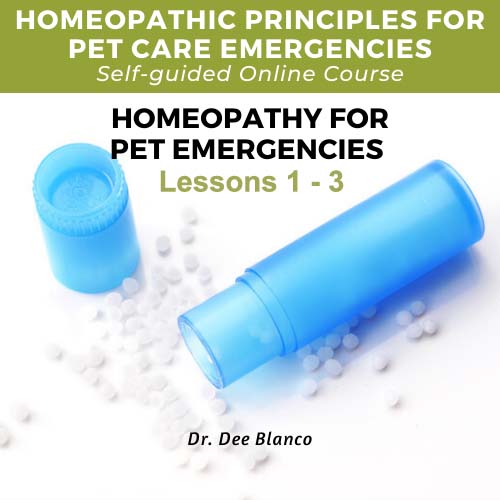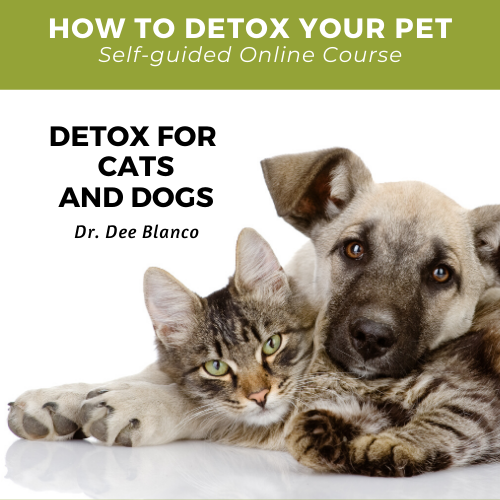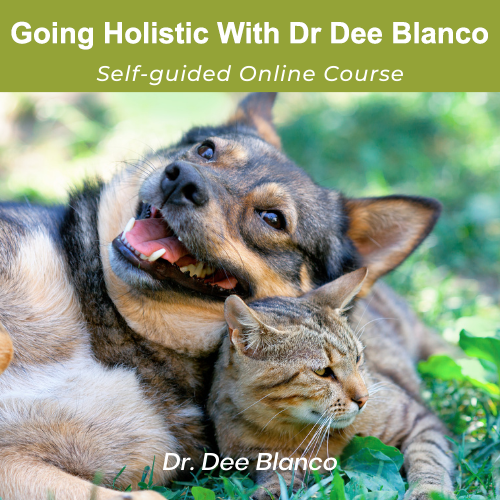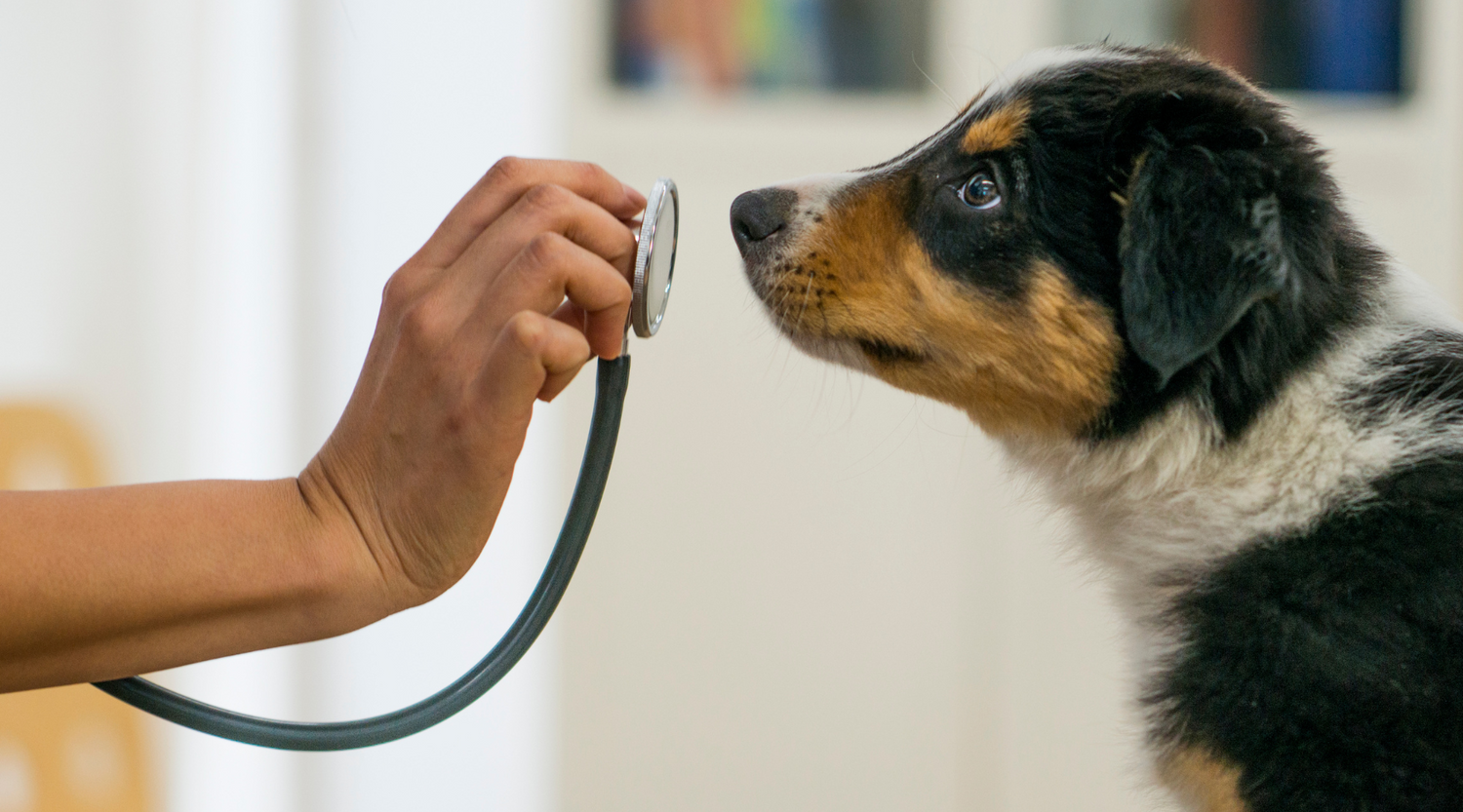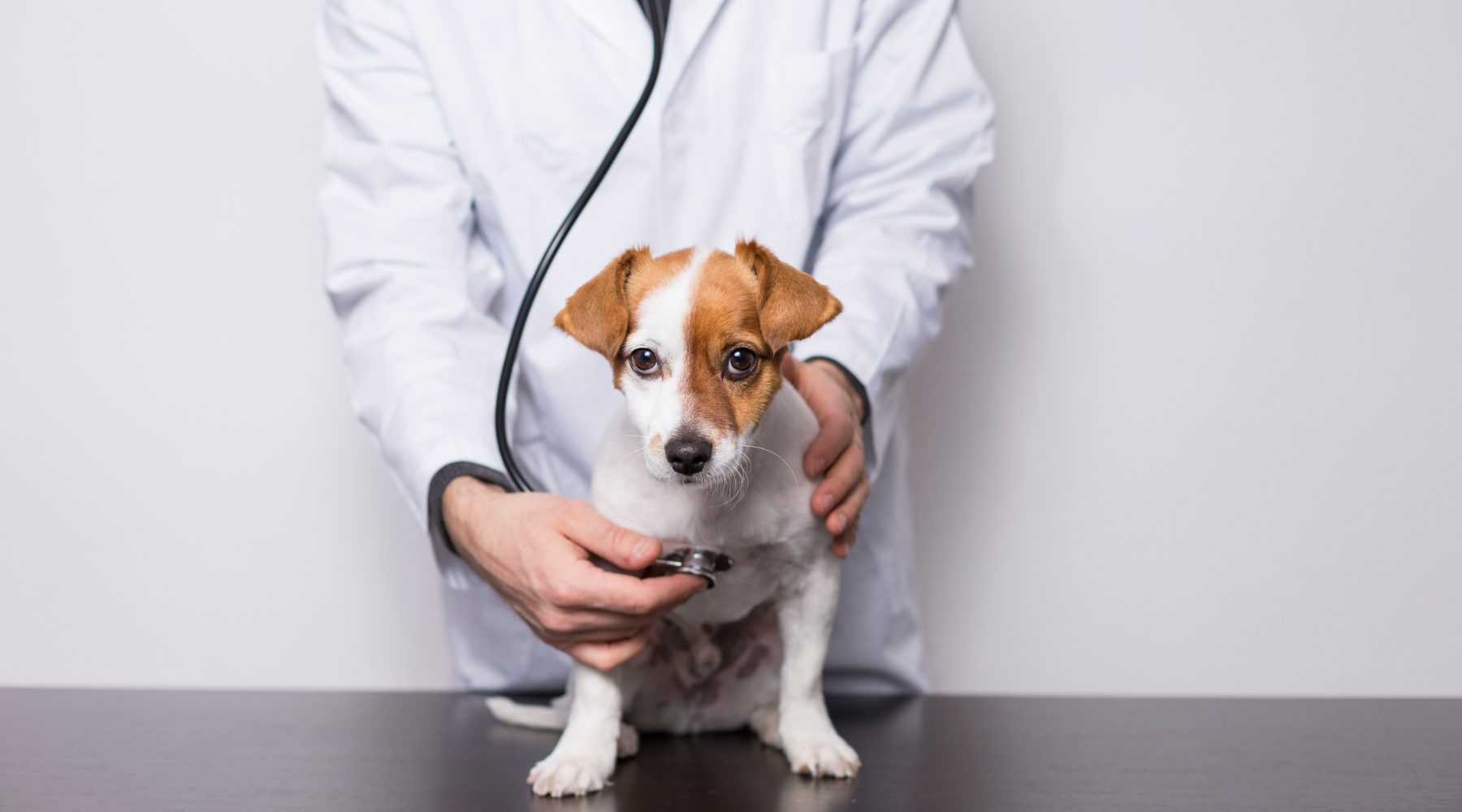Not if you employ natural rearing practices and want to keep your animal, your home, and the environment healthy!
We've all been trained and conditioned to immediately take our brand new puppy or kitten to the vet for their vaccinations. We’re told that it’s the only way to do right by them, and make sure they don’t get a dreaded disease and die. Fear is a fantastic motivator.
But have you ever had that niggling little thought that maybe your new furry family member might not need all the vaccines (the topic of another blog) and medications they suggest you buy? After all, they are soooo tiny and vulnerable. So you wrestle with the big question…
Is all this stuff really important if I want to keep my pet healthy and happy?
The short answer is: “No.”
The medium answer is: “No, not if you incorporate more natural methods of protection.”
And the long answer is: “No, definitely no. Not if you want to raise a happy, healthier than the vast majority of dogs and cats animal, that will outlive any other pet on the block! But only if you learn how to raise them by supporting their natural abilities to protect themselves. Not by poisoning them.”
Hard to believe?
The Heretical Vet has experienced it all!
I know this sounds very heretical, but after all I’m The Heretical Vet, so my experience is very different. Conventional vets would completely disagree with me; but after 42+ years of veterinary practice, I know that raising your animal in a more natural, less medicated way is a completely reachable goal, while at the same time a lot of fun.
Yes, if you’re raising your animal au natural, you can opt out of everything considered “preventative” by commercial medicine. Eeee gads you might say! Wouldn’t they be naked, and out in the world without any protection from harm?
Au contraire mon frère
Along with the list of fresh food, minimal vaccines, no ongoing use of drugs or pesticides, uncontaminated water and environment — i.e., toys, bedding, etc. — ample socialization, and regular exercise, if you are inclined to use the heretical energy medicine called Homeopathy you can opt out of everything considered “preventative” by commercial medicine. Eeee gads, again!
This does NOT mean that you should do nothing! It’s not just a matter of turning down yearly vaccinations, flea/tick/heart worm pesticides, or rejecting early spaying/neutering and processed foods. Eliminating harmful toxicants isn’t the only way to keep them healthy; but I consider it a ‘must-do’ in addition to actively supporting the body to prevent and clear illness, parasites, viruses, and bacteria. Putting chemical toxicants into the body doesn’t make anyone healthier, or prevent anything. But they do poison, pollute, and the stress the bio and detox mechanisms of the body. No bueno!
Does my pet really need this flea, tick, or heart worm "preventative?"
If you live in an area where there are many parasites, it makes sense that your vet would recommend various chemicals to fight an invasion of these agents of terror.
Sadly though, flea, tick, and heart worm pesticides are commonly recommended by vets — even in areas where there are little to no fleas, ticks, or mosquitos. They’re even recommended year-round, with snow on the ground and no mosquitos with parkas anywhere to be found!
The ongoing use of these so-called preventative pesticides have created pesticide resistance in animals, and contributed to the poisoning of the environment. Preventative heart worm ‘medications’ aren’t at all preventative. They work retroactively against the tiny worms that are currently in the body, but which actually infected your dog up to 6 weeks prior.
Ask anyone who lives in California, Florida, or anywhere with a moist climate about how their flea, tick, and parasite battles have amplified over the years. Fighting the ‘super’ fleas and ticks that have become resistant to many pesticides is difficult enough. But to make matters worse, the topical applications on your animal also end up on you, your kids, and anyone else petting your animal. And remember: these are chemicals that add additional body burdens that have to be metabolized by the liver and kidneys.
If you feel you need to treat your pet for fleas and ticks, I do recommend the holistic alternative remedies available in my shop.
When an animal has a healthy immune function, and is fed fresh life-giving food in a non-toxic environment, their immune system is ready and able to fend off a mosquito’s attack. An animal overloaded with chemicals from vaccines, food, toys, bedding, water (and everywhere else), isn’t able to rally the immune “troops” to naturally kill the heart worm in the skin. But naturally raised animals can and do every day!
Just for the record, I’m not saying you should ignore everything your regular vet says about heart worm and other parasites. But it’s prudent to actually verify if you live in a particular area of concern where those diseases are actually a problem. Then research your options for protecting your all your animals, including farm animals. There are many, many natural and plant based options.
Again, it can’t be said enough that it takes effort, commitment, and some additional cash to support your animal in a natural life style — which, in turn, supports their immune system so that it can function optimally. But just like the excessive use of synthetic pesticides and fertilizers in our food system, the price of their use is not only the direct cost per bag, but the overlooked cost of future health problems and down-stream environmental poisoning.
Does my pet really need early spaying or neutering?
I’ve covered this contentious issue in recent blogs for both male and female dogs, and I will cover it further in future blogs because it’s that important a health consideration for our animals! And because it IS that important and IS regularly filed into the silo of a one-size-fits-all solution for every canine without a careful discussion of health risks, life-styles, and surgery options, that I feel compelled to discuss the topic over and over again.
The critical hormonal development that occurs in young, growing animals is vital to every organ, and to every biological system in the body including the immune system. I trust you can read the research as I did starting 20 years ago, and explore all options for your furry family member. Early spaying and neutering is recommended by your vet as a convenience to you, as much as to control overpopulation and inhibit cancers — which current research contradicts.
Waiting until your dog is at least two or three years old to neuter or spay can make all the difference in the world in promoting their health and longevity. For cats, waiting for even as long as six months (or really more!) can go a long way to ensure lasting health.
If you wait to spay or neuter your pet, and allow them adequate time to reach puberty, it increases their chances of developing a robust immune system and fully developed bones, while decreasing the chances of bone-related diseases, some cancers, and other unwanted behaviors. It’s that simple. Among the many issues connected to early spaying and neutering, are increased chances that your animals will experience immune dysfunction, poor brain development, obesity, ligament and bone diseases, cardiac issues, certain cancers, and adverse reactions to future vaccines.
Speaking of vaccinations, what shots does my pet really need?
Unfortunately this issue is too big to squeeze into this blog; but reading What’s In Your Pet’s Vaccines will help you become aware of the nasty toxic soup being injected into your beloved. And I’ve discussed our knee-jerk responses in: Are We Vaccine Addicted? Peer pressure is just that — pressure, not science, not logic. We’ve also been steadily obliterating informed consent, and any discussion of declining vaccines. However there are more vets now who will tailor down the vaccine schedule for clients who are educated. But typically, there isn’t much discussion outside the conventional practice, especially for young animals.
How many pet parents, for example, know that most vaccines last longer than the suggested timeline for boosters suggests? Very few!
I’ll go into much more detail in Part II of this blog coming soon.
Does my pet really need to eat this ‘special’ diet?
If your vet is recommending processed foods to your animal, remember: you are what you eat.
Those hardened pellets in professional looking bags, or those stinky lumps of meat from a can, are all highly processed foods. Think about how you would feel eating out of a box daily. Your animal needs fresh food to receive living nutrients, just like you, even if your animal has gut issues. There are many ways to heal the gut with fresh diets.
I have a course dedicated entirely to how to feed your animals a fresh diet, as well as several blogs on the background information of why it’s important to feed fresh. As I’ve said in the past: “You can either pay the grocer or the doctor.” Investing in your animal’s nutrition will actually erase the need to buy any processed foods. Working with a qualified animal nutritionist, or an holistic vet, to guide you through the dietary hurdles can turn making fresh food diets into an educational experience, while you watch your animals glow from the inside out! Plus your dog will so enjoy their food made with your love. Cats may take some work!
What does your pet need?
What your pet does need to be happy and healthy is a yearly, thorough physical evaluation from a veterinarian. If your animal is older, this should include lab work, urinalysis (if it is decided), a fecal test, and possibly some screening x-rays. These simple tests can tell a lot about your animal’s health. Feces is easy to gather, but must be fresh to use for testing. The urinalysis can be done as a screen at the vet’s office with urine you collected just before your appointment. First morning urine is best; but it must be very fresh.
I’m NOT talking about the cursory checkup with just a quick heart rate, lung, and mouth check. What every pet should have is a thorough evaluation of the joints, teeth, eyes, ears, coat, mobility, strength, and palpation of the abdomen to feel for any abnormalities. After the testing, a sit-down visit with your vet to go over any concerns they’ve found, and to discuss all the options, is critical.
If you have other ideas, or support beyond the conventional methods, to treat certain illnesses, you should be able to speak openly to your vet without any judgement on their part. Your vet should give you informed consent when performing any procedure — including vaccines. You should be able to read the vaccine inserts, to look at the ingredients and to discuss the actual need for them.
What other testing does my pet need?
As your pet ages towards 8-10 years old, routine yearly blood work up can help monitor changes in the liver, kidneys, blood cells, and thyroid. The tests for organ function are call Chemistry Panels, which have shorter or longer versions to provide a different depth of detail about our pet’s health.
I suggest longer version Chemistry Panels for older animals, often called the Geriatric Chemistry Panel. Some of these include a cursory screening test for thyroid, which only gives a small indication of the health of that important gland. A more thorough, complete thyroid evaluation must be sent off to a larger lab. It requires more time to return the results; but can give much more information about the thyroid, along with the pituitary/hypothalamus and the adrenals — all of which play an important part in thyroid health.
A complete blood count, or CBC, shows the state of health of the red and white blood cells. This detects anemia, infection, allergies, and parasites — to name a few. The Chemistry Panel and the CBC are usually done together. They are well worth the money spent. This is no different than your own yearly checkup with your doctor as you age for detecting gross changes in blood values.
From these tests and physical exams, you’ll have a great deal of information about how to continue giving your pet a healthy and happy life!
As an example: if your vet finds your pet has x-ray indications of arthritis, and recommends a pain medication that could cause liver issues, consider instead a very high-quality fish oil and turmeric combination for anti-inflammatory benefit. These natural supplements provide invaluable support without side effects. Make sure to source organic, sustainable, and pure ingredients.
Your vet is a highly trained individual in the specifics of diagnostics, surgery, radiology, etc; however, most vets are not trained in natural rearing and natural preventative techniques.
When it comes to choosing super high-quality nutraceuticals, fresh food diets, vaccine education, information on resistance to parasites, and using natural medicines, your conventional vet may have little information.
Preventative natural vet care can include the use of homeopathy, acupuncture or acupressure, chiropractic or osteopathic manipulation, massage, physical therapy (laser, underwater treadmill), herbology, flower essences, and more. In fact, there are so many natural modalities available now that you have a virtual smorgasbord of choices for your animal.
So, if the question is: “How can I raise my pet naturally?”, search for a holistic vet who is trained in natural medicine, with a focus on prevention and wellness as opposed to illness and disease. If you are working with a vet trained in natural medicines, all of the same diagnostic testing applies.
Still, keep in mind, your regular vet can certainly be the right person to help you diagnose and provide supportive care, especially for acute ailments. It really takes a team to keep ourselves and our entire family healthy. Finding the right vet who supports your choices and works with you will always pay off in great health for your animal.
